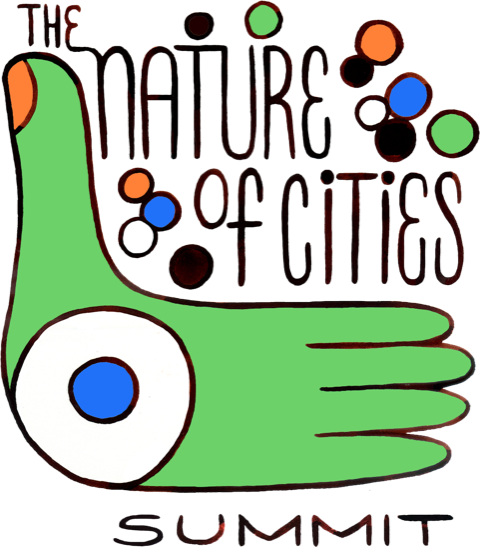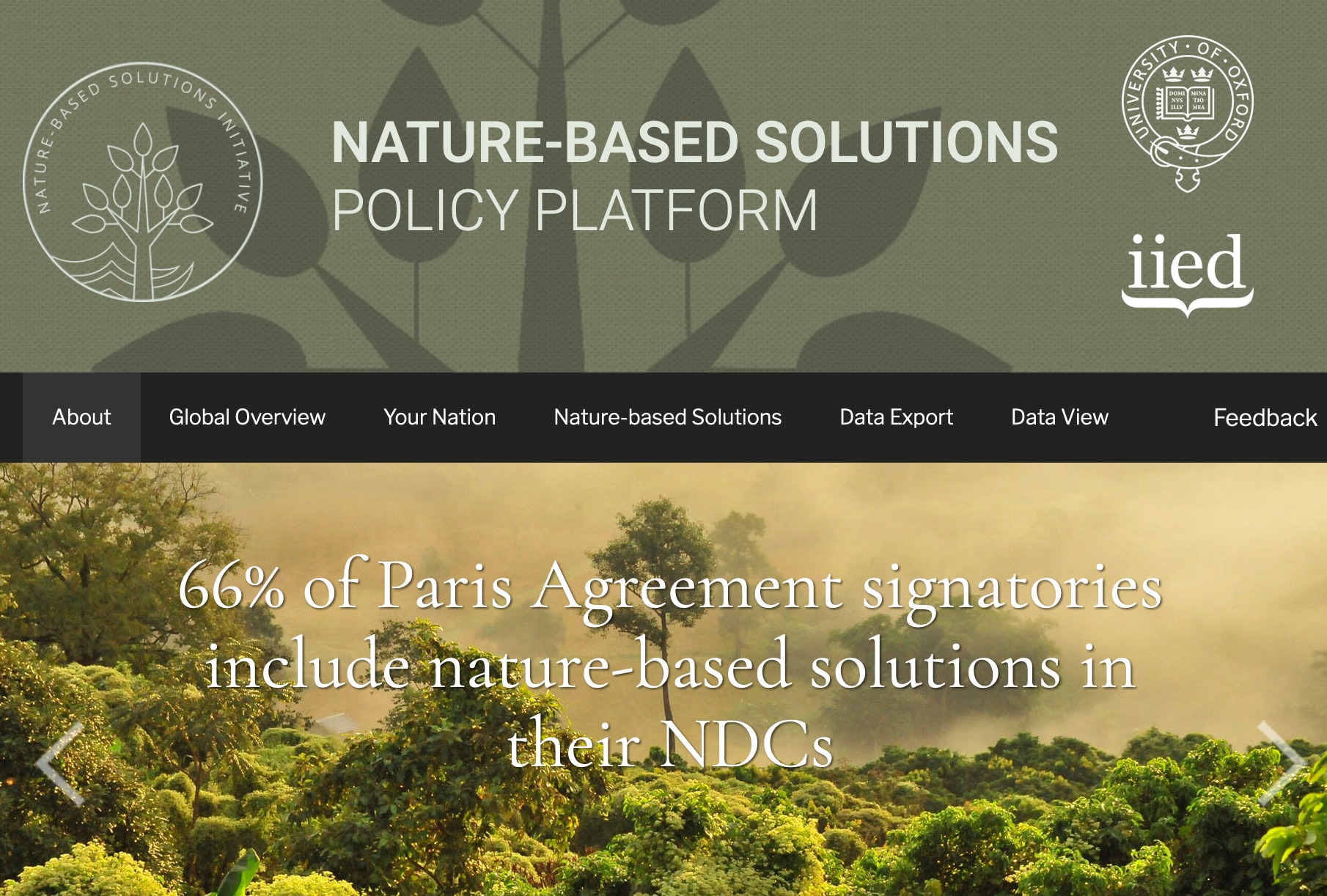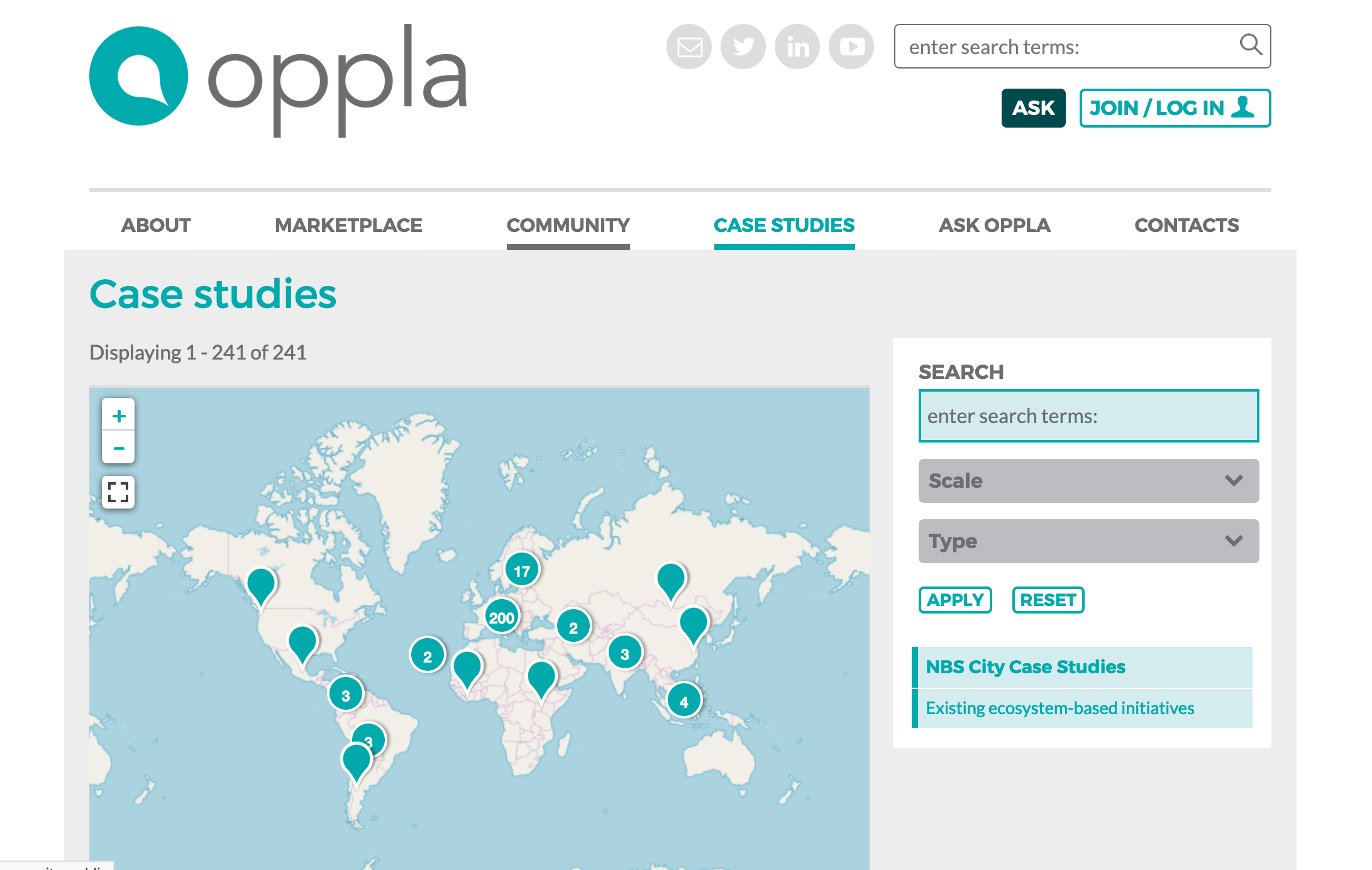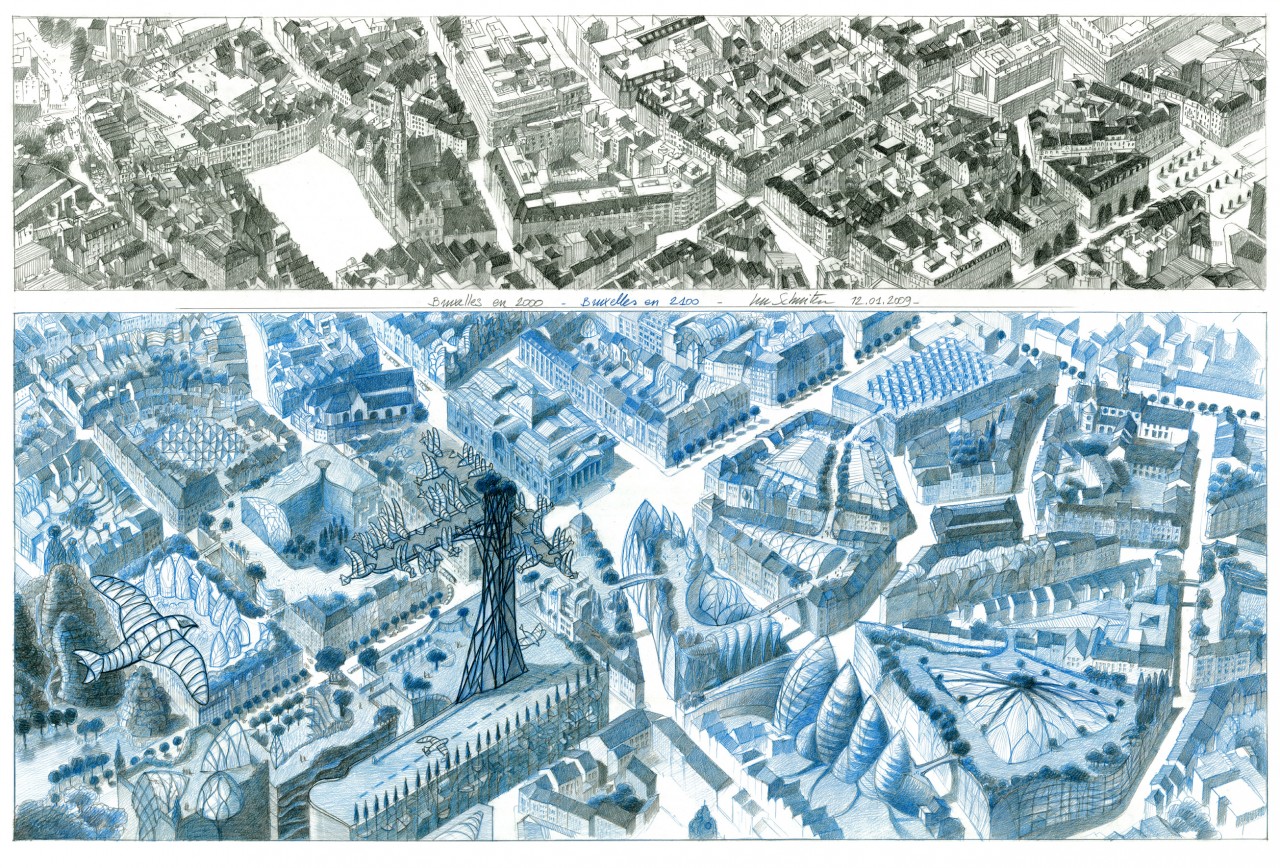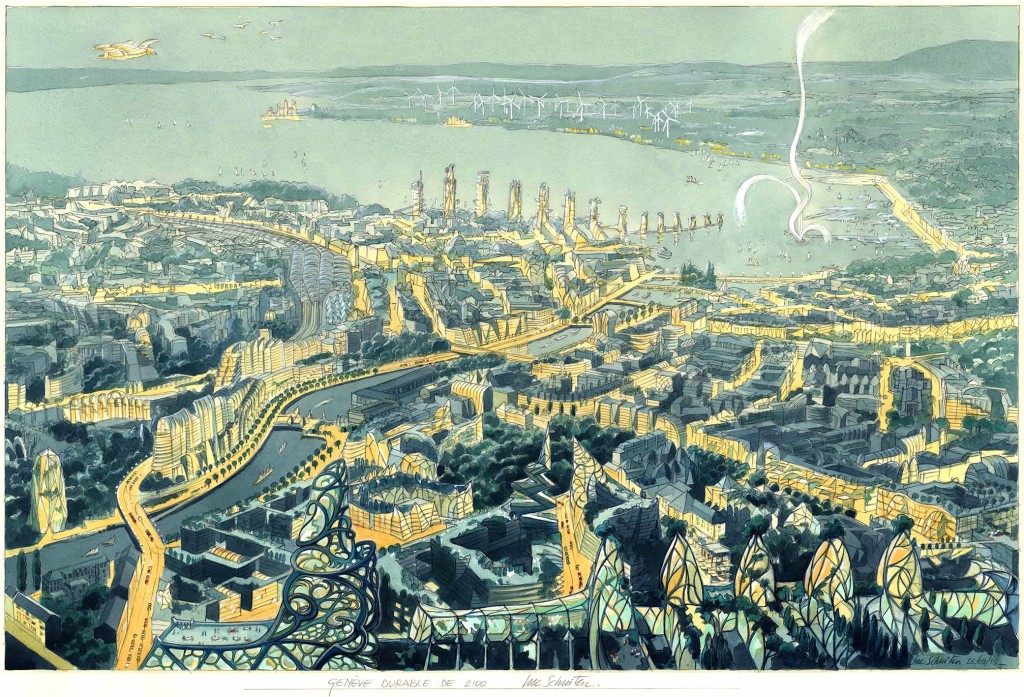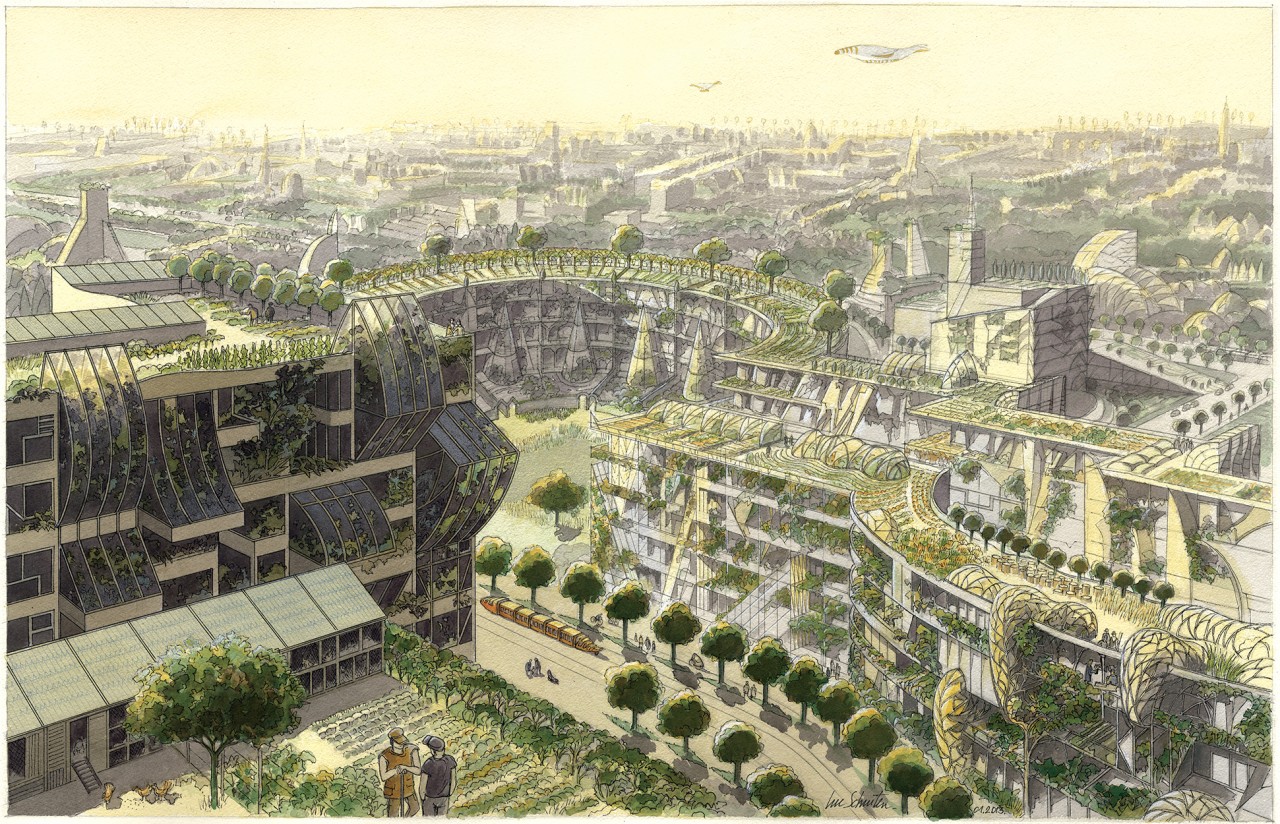The URBiNAT project was well-represented at the Paris Forum on Nature-Based Solutions (4-5 April 2019), organised by ThinkNature in coordination with the Centre Scientifique et Technique du Bâtiment (CSTB) and the City of Paris.
A three-person delegation from the URBiNAT project – two from IRSTV, the local scientific partner of the city of Nantes and one from ITEMS, the lead partner for Communication and Dissemination – took part in multiple sessions on the state of current knowledge and ongoing research on NBS, notably in connection with the topics of climate change adaptation and mitigation, and risk management and resilience.
The professionally-managed event, during which keynote presentations by prominent NBS experts from across Europe, alternated with more dynamic workshop sessions, was a good opportunity explore the governance and financial mechanisms, and engage in dialogue with other participants on knowledge gaps, the NBS research agenda and the roadmap for future actions.
In the opening session on holistic approaches to risk management and resilience, Professor Nathalie Seddon from the University of Oxford and the London-based International Institute for Environment and Development (IIED) gave an overview of the range of Nature-Based Solutions that are being applied across Europe and the world as part of concerted ecosystem-based adaptation or climate-change mitigation strategies.
There is unquestionably an increasing awareness of and movement in favour of NBS. Yet, at the same time, there is a lack of consensus about what the terms NBS and other related concepts actually mean. Seddon called for interdisciplinary research communities to work towards an agreed, simplified set of terms; a more formalised lexica that will reinforce the credibility to those that are advocating for the development and deployment of NBS.
Seddon also called for stronger bridges between research communities that are producing large volumes of work regarding the potential of NBS to effectively address a wide range of issues, including urban resilience, and city-wide, national and international policy planners. To this end she announced the launch of a Nature-Based Solutions Policy Platform, a new Open Access, online platform which seeks to make information about climate change adaptation planning across the globe more easily accessible and interesting to explore.
When the platform is fully up and running, by early summer, it will complement other online services such as ThinkNature’s multistakeholder communication platform and the EU H2020-funded Oppla platform which serves as a “marketplace”, for policy makers, researchers and practitioners interested in researching findings on natural capital, ecosystem services and NBS.
The European Commission was represented by Julie Delcroix who made an announcement regarding the next research and innovation framework programme “Horizon Europe -: 2021-2027”. Of the 100 billion that is expected to be invested, around 35% is expected to be allocated to Tackling Climate Change.
During the two-day meeting there were breakout sessions dedicated to urban forestry, an animated brainstorming session on the use of NBS for risk management across scales, i.e. how to create synergies all the way up from form neighbourhood to city to city, national, international levels, and on how urban infrastructure can become regenerative over time. IRSTV’s Ghozlane Fleury gave a presentation in a parallel session on whether “(re)naturation” can contribute to urban climate change adaptation and mitigation?.
Of particular interest to the URBiNAT delegation was a session on NBS financing, business models and decision-making, an area of research and investigation for which we have a dedicated team (work package). The purpose of the session was to exchange points of view on how NBS can play an important role in addressing multiple sustainability challenges simultaneously and – above all – in a cost-effective way. The following matrix developed by Dr Helen Toxopeus of the Naturvation project was proposed as way to create a taxonomy NBS solutions taking into account time, variability in the scale of NBS, level of stakeholder engagement and level of financial resources required.
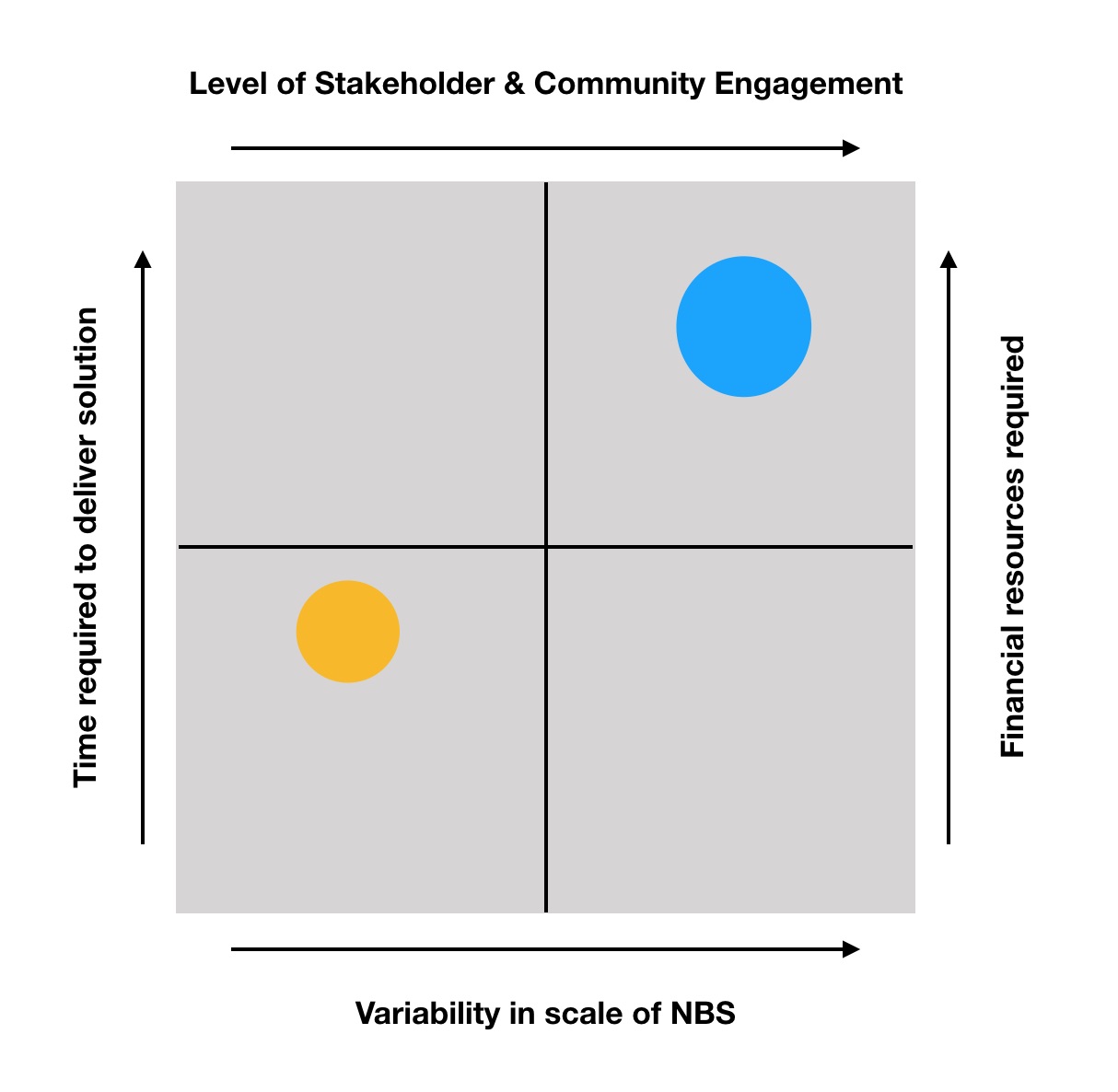
NBS and the need to imagine new possibles
The philosopher Chris Younès emphasised on the change of mindset and the innovation required by the NBS concept. In the research of new ways of doing, new designs, etc. she underlined the need to imagine new possibles by encouraging imagination and creativity. In that objective, she pointed out the necessity to involve a wide diversity of actors: practitioners, researchers, but also members of civil society, including artists.
A presentation of Luc Schuiten at the last plenary session echoed her call. Wrapping up the two day event the visionary Belgian landscape architect, artist, visionary, Luc Schuiten, presented his own very personal, somewhat utopian maybe, vision of cities of the future in which urban planning and nature have converged through biomimicry. But for Schuiten there’s nothing wrong with being utopian: “For those of us who are seeking to build a new model of sustainable society, the word utopia simply means a possibility that has not yet been experienced.”
Networking
The Forum was also an excellent opportunity to exchange with the representatives of NBS projects, :
- ICLEI : building connections across levels of government, sectors and stakeholder groups, sparking city-to-city, city-to-region, local-to-global and local-to-national connections in support of sustainable urban development.
Sister H2020-funded including
- UnaLab: promotion of smarter, more inclusive, more resilient and increasingly sustainable societies through innovative nature-based solutions.
- ThinkNature: development of a platform that supports the understanding and the promotion of Nature-Based Solutions (NBS).
- Nature of Cities & Naturvation: international platforms for transdisciplinary dialogue and urban solutions. We facilitate the sharing of diverse, transformative ideas about cities as ecosystems of people, nature, and infrastructure.
- Phusicos: demonstrating that nature-based and nature-inspired solutions (NBS) for reducing the impact of extreme weather events in rural mountain landscapes, are technically viable, socially acceptable, cost-effective and implementable at the regional scale.
Next NBS event in Paris
In just over two month’s time Paris will be host to another major NBS event, The Nature of Cities Summit (4-7 June 2019), this time more specifically focused on urban environmental issues. The URBiNAT project being focused on the regeneration of deprived neighbourhoods in cities across Europe by means of the creation of NBS-inspired Healthy Corridors, the project has every intention of being present.
One year after the launch of the URBiNAT project it will be a good opportunity to report on completion of the first “data-collection and diagnosis” phase of the project.
